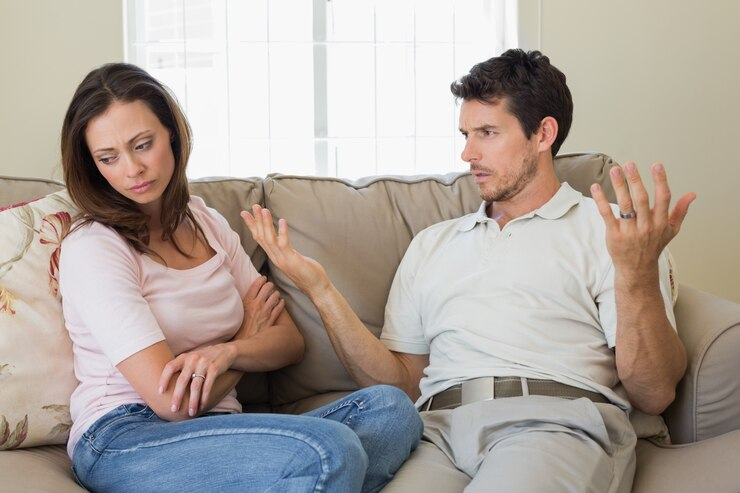How Childhood Trauma Shapes Adult Relationships: The Ghost Of Our Past
- Mehak Sharma
- Feb 28
- 4 min read
Updated: Mar 8
We like to think of our childhood as a distant memory, a chapter in our book that has long since been written. But what if those early experiences especially the painful ones continue to shape our relationships long after we leave the playground? Childhood trauma, whether it comes in the form of neglect, abuse, or emotional instability, leaves imprints that can affect the way we love, trust, and connect as adults.
Contents:

The Blueprint for Love: How Early Attachments Shape Us
From the moment we are born, we learn about love and attachment from our caregivers. If we were nurtured and comforted, we likely grew up understanding that relationships are safe and supportive. However, if we experienced neglect, inconsistency, or emotional turmoil, our understanding of love may be skewed. Psychologists often refer to this as attachment theory, which suggests that our earliest bonds dictate how we relate to others later in life. Those with secure attachments tend to form healthy relationships, while those with insecure attachments—whether avoidant, anxious, or disorganized—may struggle with trust, intimacy, and emotional regulation.
The Lingering Effects of Childhood Trauma on Love & Connection
Fear of Abandonment: When Love Feels Like a Tightrope If a child grew up in an environment where love felt conditional or unpredictable, they may develop an intense fear of being abandoned. As adults, this can lead to clinginess, overanalyzing every text message, or staying in toxic relationships just to avoid loneliness.
Emotional Walls: The Fortress We Build to Protect Ourselves On the flip side, some individuals learn that vulnerability is dangerous. If a child's emotional needs were dismissed, they might become emotionally detached in adulthood, keeping loved ones at arms length to avoid potential hurt.
Patterns of Toxic Relationships: Why We Fall for the Wrong People Many adults unconsciously seek out partners who replicate the dynamics they experienced in childhood. For instance, someone with a neglectful parent may find themselves drawn to emotionally unavailable partners, recreating the painful cycle in an attempt to "fix" the past.
Self-Sabotage: The Battle Between Love and Self-Worth Those who internalized feelings of unworthiness as children might unconsciously push away partners who treat them well, believing they don't deserve love or stability.
Struggles with Communication: Arguing Like Our Parents Did Healthy conflict resolution is often learned in childhood. If arguments in the home were full of screaming, silent treatments, or emotional withdrawal, an adult may struggle to communicate effectively in their own relationships.
Trending Topics: How Trauma Impacts Modern Relationships
Attachment Styles and Dating Apps: Love in the Digital Age
With the rise of dating apps, attachment styles are more visible than ever. Avoidant individuals may ghost others to maintain emotional distance, while anxious attachers may obsess over delayed responses. Understanding your attachment style can help navigate the digital dating world in a healthier way.
The Rise of Trauma-Informed Therapy: A New Wave of Healing
Many therapists now use trauma-informed approaches to help individuals heal from childhood wounds. EMDR Eye Movement Desensitization and Reprocessing) and somatic therapy are becoming popular methods to address deep-seated trauma and its impact on relationships.
Breaking Generational Trauma Cycles: The Power of Conscious Parenting
People are becoming more aware of generational trauma and are actively working to break these cycles. Through conscious parenting and therapy, individuals can create a healthier emotional environment for themselves and future generations.
Social Media and Relationship Anxiety: The Comparison Trap
The Comparison Trap Constant exposure to "perfect" relationships on social media can trigger insecurities, especially for those who have unresolved childhood trauma. Learning to separate reality from curated content is crucial in maintaining a healthy relationship mindset.
Pop Culture and Trauma: How TV and Films Reflect Our Emotional Wounds
How TV and Films Reflect Our Emotional Wounds From movies like Good Will Hunting to series like Bojack Horseman, pop culture is increasingly shedding light on the effects of childhood trauma. These stories resonate because they remind us that healing is possible, and that were not alone in our struggles.
Breaking the Cycle: Steps Toward Healing and Healthier Love
Healing from childhood trauma is not easy, but it is possible. Recognizing the patterns is the first step. Therapy, self-reflection, and mindfulness can help individuals rewire their emotional responses and develop healthier relationship habits.
Practical Steps to Heal and Build Stronger Relationships:
Seek Therapy: Professional guidance, especially trauma-informed therapy, can help address deep-seated wounds.
Practice Mindfulness: Understanding your emotional triggers can help you respond rather than react in relationships.
Surround Yourself with Healthy Relationships: Supportive friends and mentors can help reinforce what healthy love looks like.
Set Boundaries: Learn that saying no is a form of self-respect, not selfishness.
Engage in Self-Love Practices: Acknowledge your worth, invest in personal growth, and prioritize self-care.
Learning to trust, setting boundaries, and understanding that love should be safe, not chaotic, can open the door to genuine, fulfilling connections. The past may shape us, but it does not have to define our future.
Final Thoughts: Embracing Love Without Fear
The ghosts of our past do not have to haunt our relationships. By facing them head-on and taking steps toward healing, we can build stronger, healthier bonds that are rooted in love, trust, and security. After all, the love we accept as adults should be a choice, not a repetition of past wounds. The journey toward healing is challenging but rewarding because in the end, we all deserve love that feels like home.




Comments